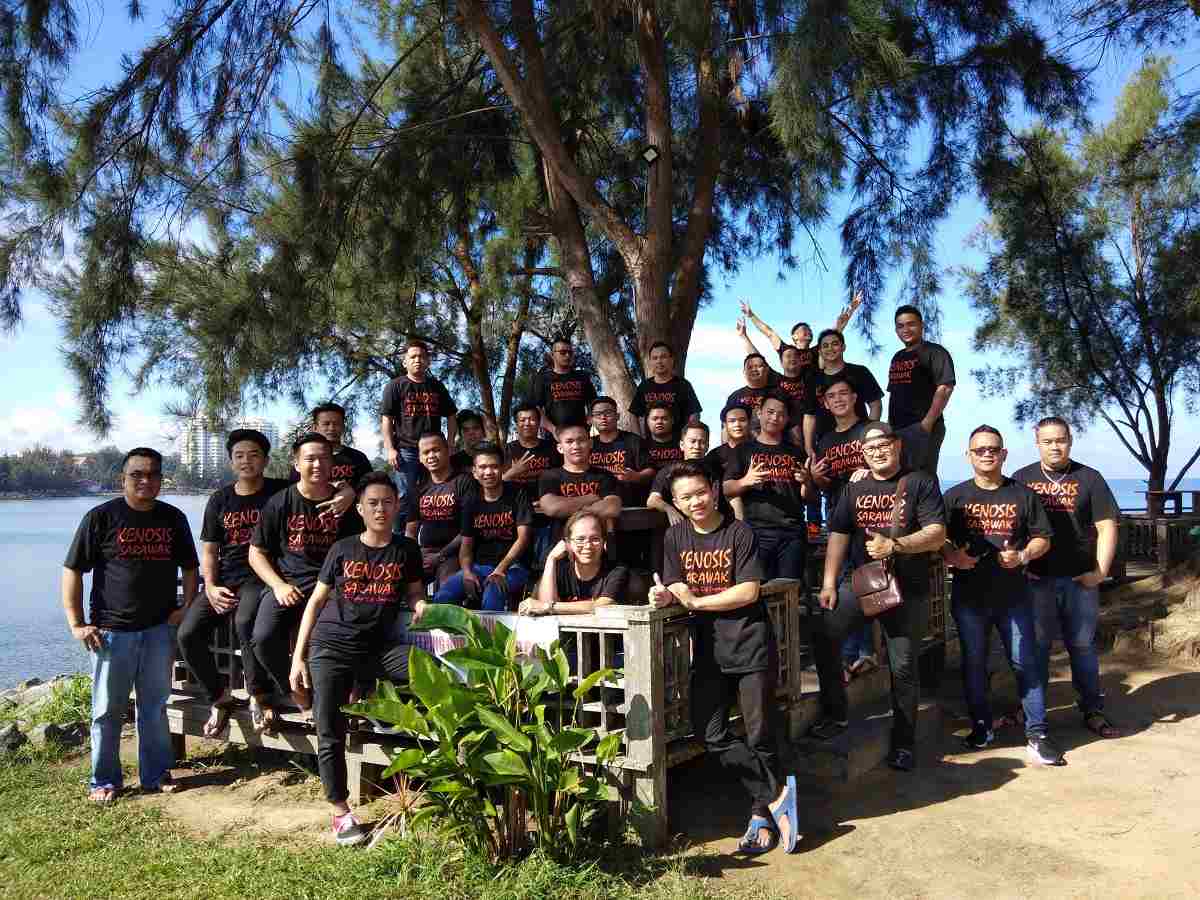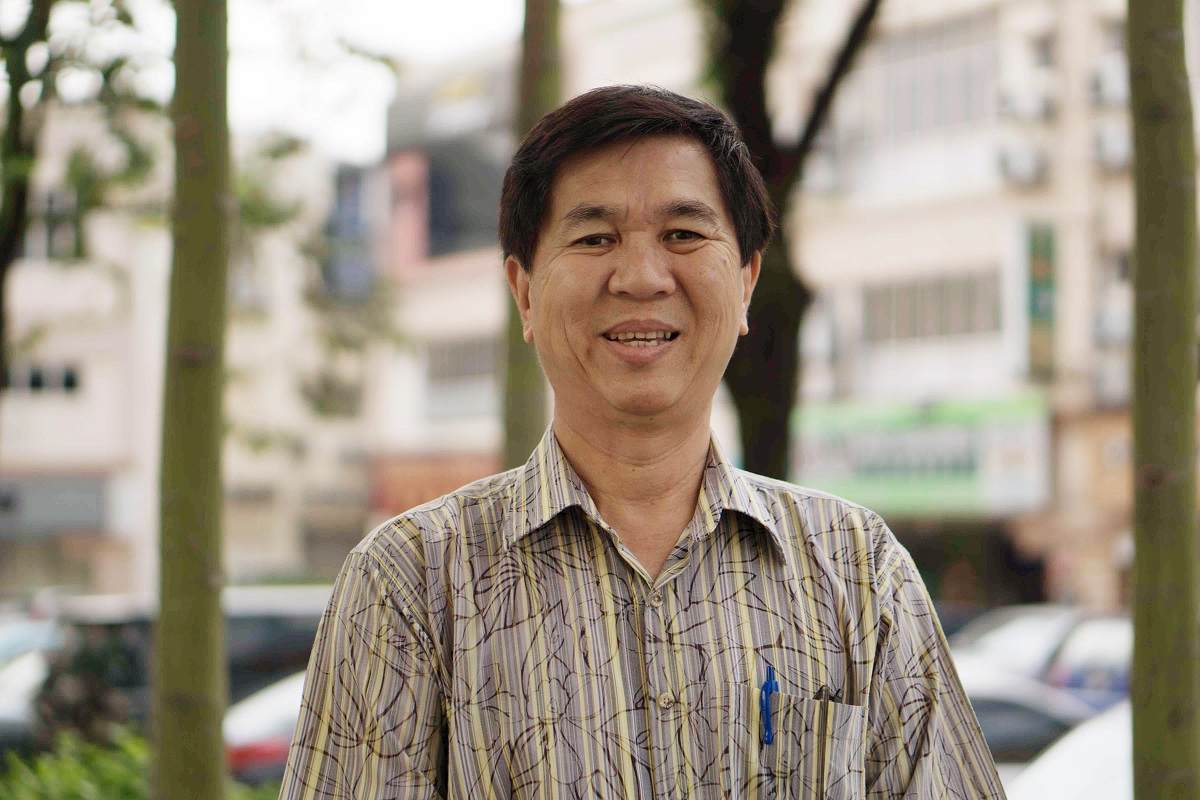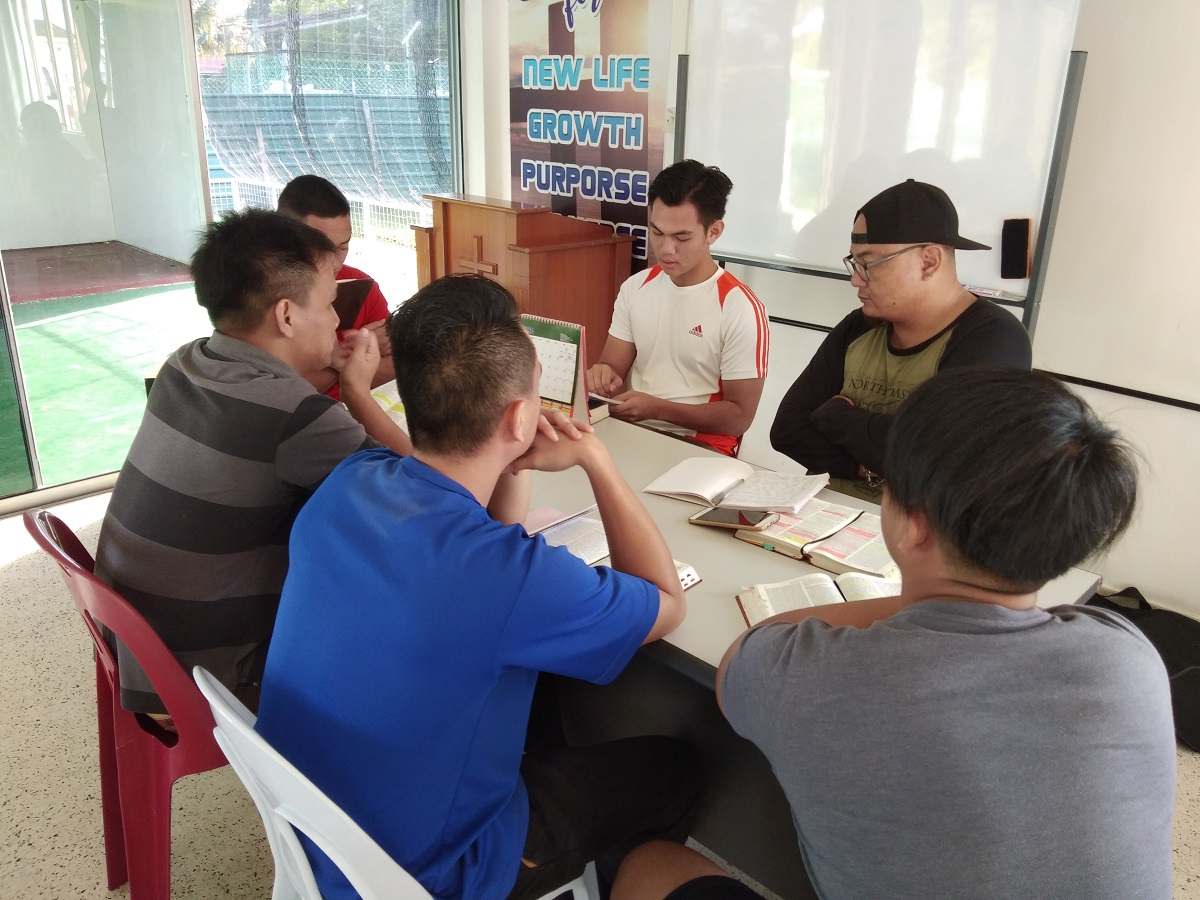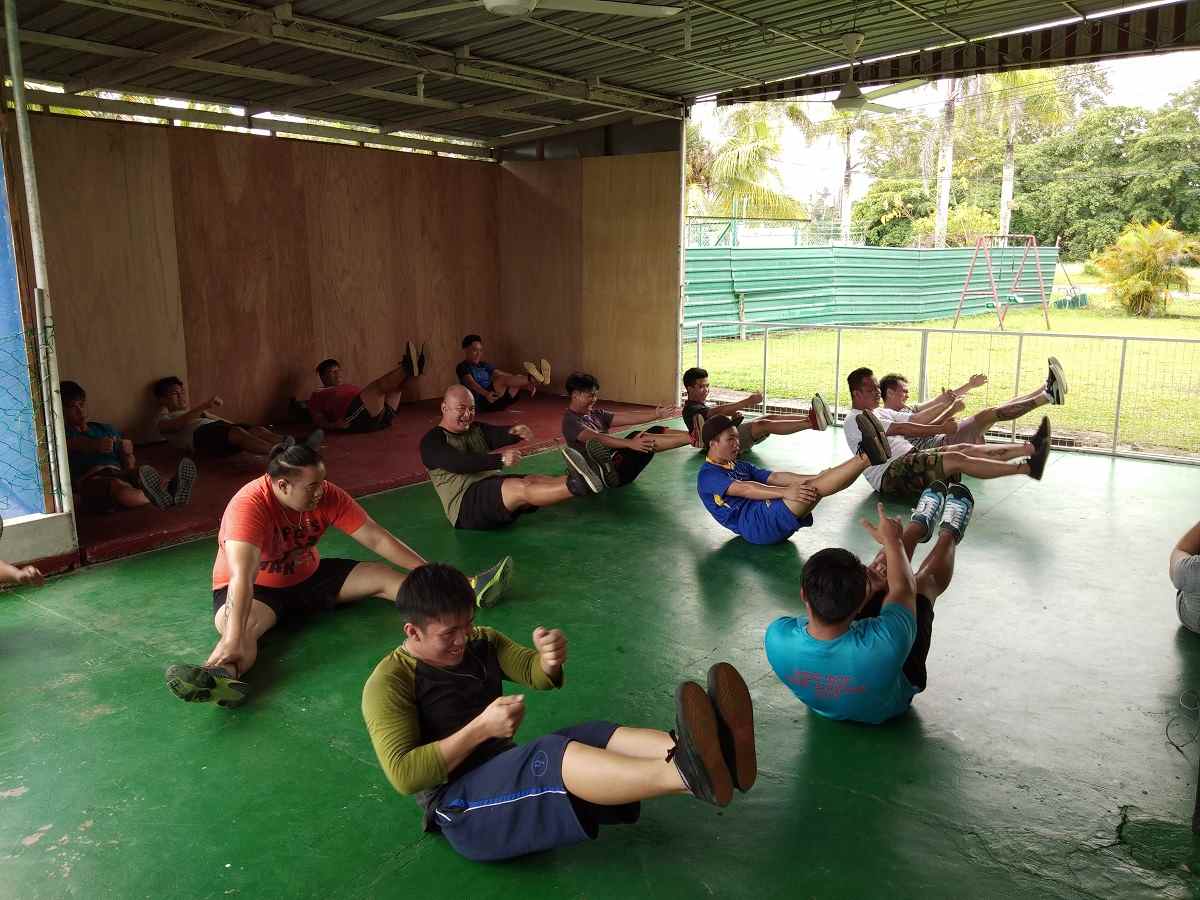SAFE HAVEN FOR YOUNG SARAWAKIAN DRUG ADDICTS
By Chew Sue Lee
In the 1980s, the drug scourge in Malaysia got so bad that the government decreed it a national threat. A national anti-drug task force team along with a mandatory death sentence for anyone caught possessing more than 15 grams of heroin were implemented. Drug offenders were required to be admitted to detention centres for rehabilitation, but the problem has persisted.
Fast forward more than 30 years later, instead of detention centres for rehabilitation, many drug rehab centres have sprouted up across the nation. While more is often an indication of success, in this case, having more halfway homes in the nation is a sad reflection of the drug problem in Malaysia.

Compassion in Action
In 2016, Sidang Injil Borneo KL (SIB KL) funded and supported the opening of a drug rehabilitation centre for youths in Miri, Sarawak. It all began in 2015 when Pastor Gilbert Wee heard a sermon about the problem of drug addiction among the youths in Sarawak. Many of them were told that ecstasy and syabu (methamphetamine) would give them extra energy to study or work harder. Soon, they were hooked.
As the pastor in charge of the church’s social outreach ministry, BLESS, Pastor Gilbert felt God prompting him to make a trip to Sarawak to see how the church could help address the problem. BLESS Ministry also supports Kenosis Home, a successful and long-serving Christian drug rehabilitation centre in Kuala Lumpur (KL).
Keeping an open heart to what God had in mind, Pastor Gilbert travelled to Lawas with Pastor Richard Lee and Pastor Bob Leong, former addicts and co-founders of Kenosis Home KL.
In Lawas, the town responsible for the supply of drugs in the area, they saw many young people languishing by the roadside, high on drugs. Schools were at a loss as to how to address the issue of drug use among students as suspending or expelling them only resulted in further social ills.
“We then visited Bekalalan, a stronghold of Christianity, and was surprised to hear from the church leaders that there were families in their church community who were on drugs,” recalls Pastor Gilbert. The church leaders expressed their concern and feelings of helplessness, as they did not know how to help these families apart from interceding.
When Pastor Gilbert shared with them the objective of their visit, the church leaders were speechless and said that they were God-sent. “At that point we were only there for a recce and no plans had been made,” he says. But God had already paved the way for them in answer to the prayers of the churches there.
“We heard God and said ‘let’s do it’. But we knew that it would not be easy to start this because we needed to engage a local who could speak the local dialects and who would love the work.”
Once again, God answered prayers in the form of Pastor Frederick Besar, a local pastor who had a heart for helping young drug addicts, but never knew how to. With a local to lead the way, the team chose to base the rehab centre in Miri because it was central to Lawas and Bekalalan. Additionally, the presence of Miri Hospital ensured that anyone suffering from drug-related ailments could quickly get medical help.
“We sent feelers out to look for a suitable location to rent. I told Pastor Besar that if we couldn’t find a place with a rental of less than RM1,500, get me a haunted or deserted house and we will go in and clean it up!” Pastor Gilbert chuckles. In the end, God provided a comfortable bungalow with sufficient land to let the residents farm vegetables. The rental? Only RM1,000!
Thus, in 2016, the first Kenosis Sarawak @ Miri drug rehabilitation centre was opened. The next year, the ministry launched a second and larger centre that houses up to 30 residents. Currently, both centres are home to 26 males aged between 14 and 30.
The residents are mainly from the Lumbawang, Iban, Berawan and Kelabit tribes. Many of them were influenced by their schoolmates to start taking drugs. While statistics on the prevalence of drug usage in Sarawak is unavailable, according to Pastor Gilbert, each of the Kenosis Sarawak residents claims to know at least five classmates who are on drugs.
Today, Pastor Robert Danor and his wife Pastor Asang Ismail lead the work at Kenosis Sarawak. Both have been in ministry for the last 25 years and have a particular passion for young people, especially those who have strayed away from their faith.

The programme
The residents of Kenosis are required to complete an 18-month stay at the centre before graduating. The centre charges a nominal fee of RM600 a month to encourage the residents and their families to take the programme seriously. However, thanks to funds sourced from BLESS and other fundraising efforts, residents are not asked to leave even if they can’t pay. Many families bring gifts-in-kind – rice and vegetables from their own farms, and sometimes even a wild boar or two.
In the first two weeks of their stay, residents quit their addiction cold turkey, and are forbidden to leave the centre for the first six months. Their days include a time of devotion, lectures, leadership and music training, exercise and chores. In addition, seminary students from Malaysia Evangelical College of Miri regularly lead Bible studies with them.
For the next six months, residents are allowed to leave the centre to work and families are permitted to visit. As jobs are difficult to come by, work is limited to cleaning churches and farming the land at the centre. In the last six months of the programme, residents are trained to supervise and mentor the “juniors”. The Kenosis staff also counsel the seniors on their plans post-graduation.

Life after rehab
“We encourage graduates to join as a staff for a year so that they can keep on with post-care. In helping to care for others, that will also help them recover,” says Pastor Gilbert. So far, three graduated residents are on staff at Kenosis.
However, for those who have to finish school, they run the risk of getting back into the habit once they return home. “One boy who finished the programme came back to the centre to go through the programme again. He said he had gone back to school, but succumbed to the negative influence of his friends,” Pastor Gilbert laments.
With this in mind, Pastor Gilbert has begun the groundwork to try and keep the Kenosis graduates in Miri. “I’ve asked the local board to speak to the ministry of education to help absorb these boys into the Miri schools. Since some of the residents have drug-related health problems, we also need the teachers’ commitment to monitor them,” he says.
The Kenosis team is looking at renting a house close to the centre so that the rehabilitated residents can attend school in Miri and complete their studies without the bad influence of their old friends.
Pastor Robert notes that the post-care follow up with graduated residents is not easy as suitable jobs are lacking in Miri. When a parent heard about this, he offered to help.
Mr Ballan runs a successful food stall selling Lumbawang cuisine and presented the idea of partnering with any graduate who wants to work, offering to share with them his recipes and resources. So far, one such stall has been opened. Mr Ballan has also given an acre of his agricultural land for the residents to do organic farming as a source of income.
“This parent’s support brings us much joy,” said Pastor Gilbert.

Difficult but rewarding
Pastor Robert admits that walking alongside former drug addicts is challenging and requires daily attention to their physical, emotional and spiritual needs. But testimonies of transformed lives continue to fuel his passion for the work.
“One of our residents from the Berawan tribe, Martin, spent two decades of his life living in darkness. He was a drug addict and a drug dealer. But in 2017, he found himself at the lowest point in his life and came to Kenosis Sarawak crying, saying that he wanted to change. He had been rejected by his family and we took him in and began to minister to him,” shares Pastor Robert.
In the next few months, Martin’s family began to see the changes in his life, both physically and spiritually. They shed tears of joy in seeing the transformation and soon embraced him back into the family. Reformed now, Martin works full time as a staff at Kenosis Sarawak, and actively serves in his church as well.
Pastor Gilbert shares that many of the residents encounter Jesus at the centre and are water baptised almost immediately after.
As the Lord leads, the Kenosis team plans to open more centres in Sarawak to meet the urgent need. However, support, both manpower and finances, from the local churches is needed. “Acquiring funding for the work is difficult as there is no local church support apart from that what we receive from SIBKL. Every month, we welcome a new resident and the number is increasing, whereas we only have five full-time staff and are lacking in manpower,” says Pastor Robert.
Even so, he is quick to add that he finds joy in his work and has confidence that God will provide; His arm is never too short to save. He has seen God working in the lives of the residents, and believes God works miracles to heal them, to give them a future that is full of hope and purpose.
Asian Beacon: Oct – Dec 2018 (Vol 50 #4, p20-21, 35)
